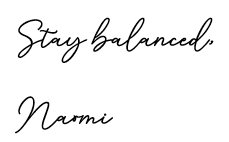It’s Not You, It’s Your Work Environment

We often hear that self-improvement is the key to thriving in both personal and professional settings. But what happens when, despite your efforts, you’re still struggling at work? The truth is that sometimes the issue isn’t you—it’s your work environment. No matter how much personal growth you pursue, a toxic workplace can stifle your progress, making it difficult to feel satisfied or fulfilled in your job.
The Role of the Work Environment
Workplaces can become toxic for various reasons. Unrealistic demands, lack of support, and dysfunctional dynamics can all contribute to a culture that wears employees down. This is especially true in environments that glorify “hustle culture”—constantly pushing productivity at the expense of well-being. While personal development helps you navigate challenges, it doesn’t fix the environment itself. This mismatch can lead to feelings of burnout, helplessness, and frustration.

Red Flags of a Toxic Work Environment
Recognizing the signs of a toxic workplace can help you decide whether it’s time for a change. Here are some red flags to watch out for:
- High Turnover: If employees are constantly leaving, it’s a sign that something is wrong.
- Micromanagement: When supervisors don’t trust you to do your job, it can lead to stress and hinder your ability to perform.
- Lack of Boundaries: Are you expected to be available 24/7 or take on unreasonable workloads? This lack of respect for personal time can lead to burnout.
- Negative Office Culture: A culture of gossip, blame, or competition can create an environment where employees feel unsupported and disconnected.
- Lack of Growth Opportunities: A workplace that doesn’t invest in your development or promote from within can leave you feeling stagnant.
- Poor Communication: When feedback is unclear or inconsistent, it’s hard to know where you stand or how to improve.
- Emotional Manipulation or Gaslighting: Being made to feel guilty for setting boundaries or questioning poor treatment is a significant sign of toxicity.
- Unfair Policies or Favoritism: A lack of transparency in promotions or pay raises can breed resentment and lower morale
What Can You Do?
While it’s tempting to think that working harder on yourself will help, a toxic environment is not something you can change alone. Recognizing these red flags is the first step in protecting your mental and emotional well-being. Seeking support, whether through therapy or discussing options with trusted mentors, can provide clarity and help you decide the next best steps for your career.
Ultimately, no amount of self-improvement can compensate for an unhealthy work environment. If the red flags are piling up, it might be time to prioritize your well-being and seek a place where you can truly thrive
